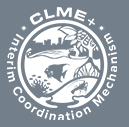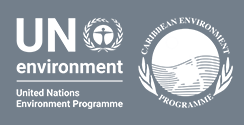|
Insular Caribbean
|
Central & North America |
South America |
Insular Caribbean |
Central & North America |
South America |
Displaying 1-10 of 98 results
 indicates that the Project Profile has been verified and it’s being managed by the project’s profile manager.
indicates that the Project Profile has been verified and it’s being managed by the project’s profile manager. -
Mi Costa Coastal Resilience to Climate Change in Cuba through Ecosystem Based Adaptation
Resiliencia costera al cambio climático en Cuba mediante la adaptación basada en ecosistemasBrief Description:The project aims to increase the climate resilience of over 1.3 million vulnerable people living in the target coastal communities by employing an ecosystem-based adaptation approach. It will restore mangroves, swamp forests and grass swamps to improve the health of seagrass beds and coral reefs. The project will also include training 60 percent of the population within the targeted municipalities on how to protect ecosystems to enhance climate adaptation.El proyecto tiene como objetivo aumentar la resiliencia climática de más de 1,3 millones de personas vulnerables que viven en las comunidades costeras objetivo mediante el empleo de un enfoque de adaptación basado en ecosistemas. Restaurará manglares, bosques pantanosos y pantanos de pastos para mejorar la salud de los lechos de pastos marinos y los arrecifes de coral. El proyecto también incluirá la capacitación del 60 por ciento de la población dentro de los municipios seleccionados sobre cómo proteger los ecosistemas para mejorar la adaptación climática.Lead Organization: Ministerio de Ciencia, Tecnologia y Ambiente, Agencia de Medio AmbienteDonor: Green Climate FundProject ID: fp 157Geographic Scope: NationalProject Status: OngoingLast Update: 07/04/2021
Start Date: 2021-03-19
End Date: 2029-03-19Project Profile Manager: José Fidel Santana Núñez
Contact Email: SANTANA@CITMA.CU
Contact Phone:Partners: UNDPGrant (USD): $23,927,294.00Total co-financing (USD): $20,371,935.00(Co) financing not originating from GEF:Participating Country(s):Cuba
Contributions to the 10-year CLME+ Strategic Action Programme (2015-2025)
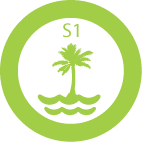


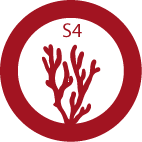
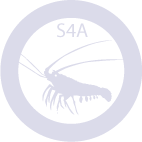

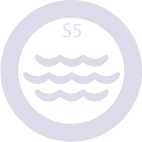
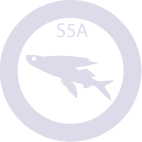
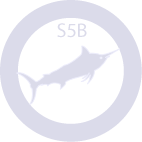
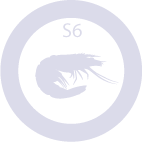 Please click on the colored SAP Strategy icon to obtain more information on the specific SAP Actions this initiative is contributing to1. Enhance the regional governance arrangements for the protection of the marine environment
Please click on the colored SAP Strategy icon to obtain more information on the specific SAP Actions this initiative is contributing to1. Enhance the regional governance arrangements for the protection of the marine environment
1.5. Establish and/or enhance the capacity of the regional,sub-regional and national governance arrangements for the involvement of civil society in the implementation of the EBM/EAF approach (IGOs,NGOs,CBOs,private sector...)2. Enhance the regional governance arrangements for sustainable fisheries
3. Establish and operationalise a regional policy coordination mechanismfor ocean governance, with initial focus on shared Living Marine Resources
4. Enhance the governance arrangements for ecosystem-based management for reefs and associated ecosystems
4.6. Establish and/or enhance the institutional structure and capacity of (sub-)regional and national arrangements for implementing management and conservation measures for reef ecosystems4A. Enhance the governance arrangementsfor implementing an ecosystem approach for spiny lobster fisheries
4B. Enhance the governance arrangementsfor implementing an ecosystem approach for queen conch fisheries
5. Enhance the governance arrangements for implementing an ecosystem approach for pelagic fisheries
5A. Enhance the governance arrangements for implementing the ecosystem approach for flyingfish fisheries
5B. Enhance the governance arrangementsfor implementing an ecosystem approach for large pelagics fisheries
6. Implement EBM/EAF of the Guianas-Brazil continental shelf with special reference to the shrimp and groundfish fishery
Contributions to the 2030 UN Sustainable Development Agenda (SDG’s)
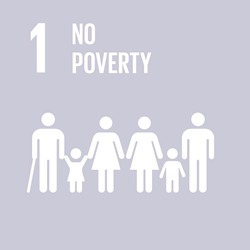
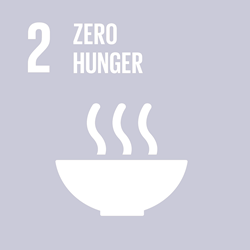
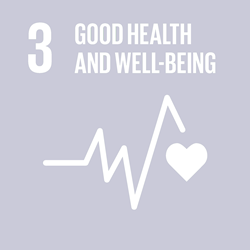
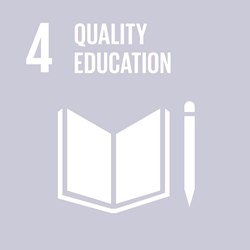
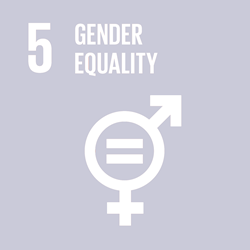
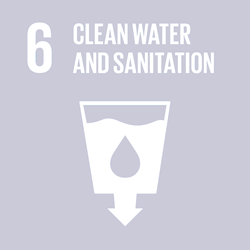
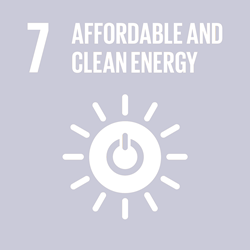
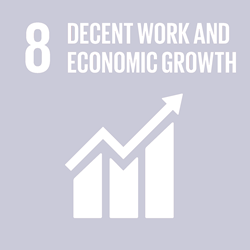
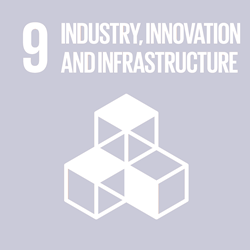
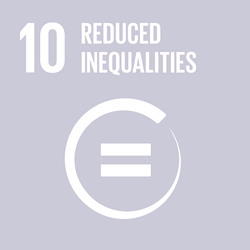
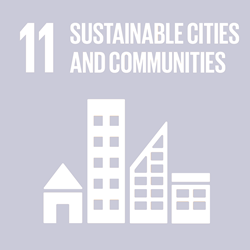
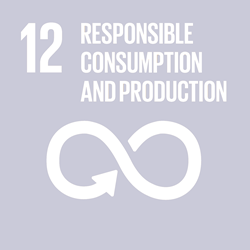
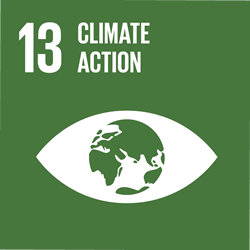
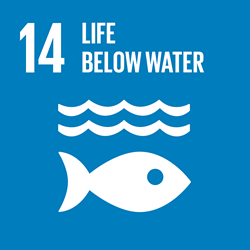
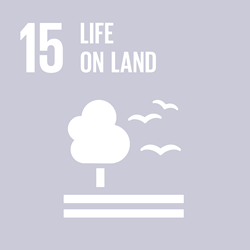
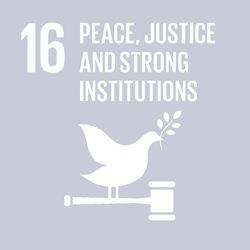
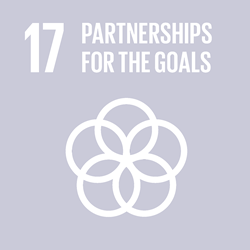
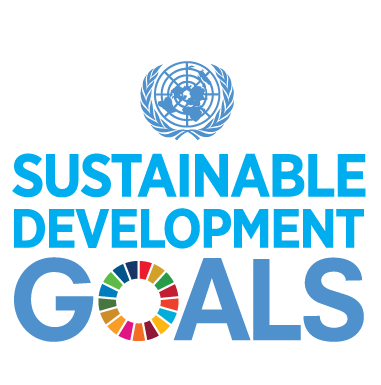 Please click on the SDG14 colored icon to see to which specific SDG14 targets this initiative is contributing.1. End poverty in all its forms everywhere
Please click on the SDG14 colored icon to see to which specific SDG14 targets this initiative is contributing.1. End poverty in all its forms everywhere
2 End hunger, achieve food security and improved nutrition and promote sustainable agriculture
3 Ensure healthy lives and promote well-being for all at all ages
4 Ensure inclusive and equitable quality education and promote lifelong learning opportunities for all
5 Achieve gender equality and empower all women and girls
6 Ensure availability and sustainable management of water and sanitation for all
7 Ensure access to affordable, reliable, sustainable and modern energy for all
8 Promote sustained, inclusive and sustainable economic growth, full and productive employment and decent work for all
9 Build resilient infrastructure, promote inclusive and sustainable industrialization and foster innovation
10 Reduce inequality within and among countries
11 Make cities and human settlements inclusive, safe, resilient and sustainable
12 Ensure sustainable consumption and production patterns
13 Take urgent action to combat climate change and its impacts
13.1 Strengthen resilience and adaptive capacity to climate-related hazards and natural disasters in all countries14 Conserve and sustainably use the oceans, seas and marine resources for sustainable development
14.2 By 2020, sustainably manage and protect marine and coastal ecosystems to avoid significant adverse impacts, including by strengthening their resilience, and take action for their restoration in order to achieve healthy and productive oceans14.5 By 2020, conserve at least 10 per cent of coastal and marine areas, consistent with national and international law and based on the best available scientific information15 Protect, restore and promote sustainable use of terrestrial ecosystems, sustainably manage forests, combat desertification, and halt and reverse land degradation and halt biodiversity loss
16 Promote peaceful and inclusive societies for sustainable development, provide access to justice for all and build effective, accountable and inclusive institutions at all levels
Other Regional and Global Commitments
Regional Emerging Issues
Coastal Protection for Climate Change Adaptation in the Small Island States in the Caribbean
Protección costera para la adaptación al cambio climático en los pequeños estados insulares del CaribeBrief Description:The Project is aimed to follow a bottom-up approach in which governmental and non-governmental institutions in participating countries can apply with proposals to pursue Local Adaptation Measures. It is comprised of two main components: a) Investments for sustainable improvements of coastal ecosystems relevant for climate change adaptation; and b) Assistance in the preparation and implementation of local adaptation measures. In total, 11 local adaptation projects have been funded in these four countries. Ecologic Institute provides technical assistance to each of the local adaptation projects by co-designing an indicator framework to monitor and assess their effects on coastal ecosystem services.El proyecto tiene como objetivo seguir un enfoque de abajo hacia arriba en el que las instituciones gubernamentales y no gubernamentales de los países participantes puedan presentar propuestas para aplicar medidas de adaptación local. Consta de dos componentes principales: a) Inversiones para mejoras sostenibles de los ecosistemas costeros relevantes para la adaptación al cambio climático; y b) Asistencia en la preparación e implementación de medidas locales de adaptación. En total, se han financiado 11 proyectos de adaptación local en estos cuatro países. El Instituto Ecológico brinda asistencia técnica a cada uno de los proyectos de adaptación local mediante el co-diseño de un marco de indicadores para monitorear y evaluar sus efectos en los servicios de los ecosistemas costeros.Lead Organization: Caribbean Community Climate Change CentreDonor: KfwProject ID:Geographic Scope: Multicountry (regional)Project Status: CompletedLast Update: 07/04/2021
Start Date: 2015
End Date: 2019Project Profile Manager: Dorett Tennyson
Contact Email: dtennyson@caribbeanclimate.bz
Contact Phone:Partners: CARICOM. IUCN/ORMAC, IDM consultantsGrant (USD): $15,000,000.00Total co-financing (USD): $0.00(Co) financing not originating from GEF:Participating Country(s):Grenada
Jamaica
Saint Lucia
Saint Vincent and the Grenadines
Contributions to the 10-year CLME+ Strategic Action Programme (2015-2025)



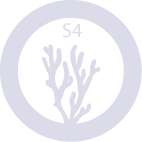





 Please click on the colored SAP Strategy icon to obtain more information on the specific SAP Actions this initiative is contributing to1. Enhance the regional governance arrangements for the protection of the marine environment
Please click on the colored SAP Strategy icon to obtain more information on the specific SAP Actions this initiative is contributing to1. Enhance the regional governance arrangements for the protection of the marine environment
1.6. Enhance the capacity within and among arrangements to undertake and mainstream lessons learned and findings from monitoring,science and research in regional, sub-regional and national decision-making2. Enhance the regional governance arrangements for sustainable fisheries
3. Establish and operationalise a regional policy coordination mechanismfor ocean governance, with initial focus on shared Living Marine Resources
4. Enhance the governance arrangements for ecosystem-based management for reefs and associated ecosystems
4A. Enhance the governance arrangementsfor implementing an ecosystem approach for spiny lobster fisheries
4B. Enhance the governance arrangementsfor implementing an ecosystem approach for queen conch fisheries
5. Enhance the governance arrangements for implementing an ecosystem approach for pelagic fisheries
5A. Enhance the governance arrangements for implementing the ecosystem approach for flyingfish fisheries
5B. Enhance the governance arrangementsfor implementing an ecosystem approach for large pelagics fisheries
6. Implement EBM/EAF of the Guianas-Brazil continental shelf with special reference to the shrimp and groundfish fishery
Contributions to the 2030 UN Sustainable Development Agenda (SDG’s)

















 Please click on the SDG14 colored icon to see to which specific SDG14 targets this initiative is contributing.1. End poverty in all its forms everywhere
Please click on the SDG14 colored icon to see to which specific SDG14 targets this initiative is contributing.1. End poverty in all its forms everywhere
2 End hunger, achieve food security and improved nutrition and promote sustainable agriculture
3 Ensure healthy lives and promote well-being for all at all ages
4 Ensure inclusive and equitable quality education and promote lifelong learning opportunities for all
5 Achieve gender equality and empower all women and girls
6 Ensure availability and sustainable management of water and sanitation for all
7 Ensure access to affordable, reliable, sustainable and modern energy for all
8 Promote sustained, inclusive and sustainable economic growth, full and productive employment and decent work for all
9 Build resilient infrastructure, promote inclusive and sustainable industrialization and foster innovation
10 Reduce inequality within and among countries
11 Make cities and human settlements inclusive, safe, resilient and sustainable
12 Ensure sustainable consumption and production patterns
13 Take urgent action to combat climate change and its impacts
13.1 Strengthen resilience and adaptive capacity to climate-related hazards and natural disasters in all countries14 Conserve and sustainably use the oceans, seas and marine resources for sustainable development
14.3 Minimize and address the impacts of ocean acidification, including through enhanced scientific cooperation at all levels15 Protect, restore and promote sustainable use of terrestrial ecosystems, sustainably manage forests, combat desertification, and halt and reverse land degradation and halt biodiversity loss
16 Promote peaceful and inclusive societies for sustainable development, provide access to justice for all and build effective, accountable and inclusive institutions at all levels
Other Regional and Global Commitments
Regional Emerging Issues
BRUVS Global Ocean Wildlife Analysis Network
Red mundial de análisis de la vida silvestre oceánicaBrief Description:The project is utilizing Baited Remote Underwater Video systems (BRUVS) consisting of underwater camera rigs that are being rolled out across the British Overseas Territories aimed to collect important biological information across the Caribbean, South Atlantic, Indian, Pacific and Southern Oceans, making it the world’s largest ocean wildlife monitoring system. The network is being set up as part of the UK Government Blue Belt programme – which covers more than 4 million square kilometres of ocean. The 66 BRUVS will be used to film and analyse data on many species, including white marlin, sailfish, silky sharks, black triggerfish, loggerhead turtles, Gould’s squid, bottlenose wedgefish and sea snakes. The Blue Belt Programme is being developed to raise compliance and enforcement thus ensuring that the pristine, unique and highly diverse marine environments will be conserved and sustainably managed into the future.El proyecto utiliza sistemas de video submarino remoto cebados (BRUVS) que consisten en equipos de cámaras submarinas en los Territorios Británicos de Ultramar con el objetivo de recopilar información biológica importante en los océanos Caribe, Atlántico Sur, Índico, Pacífico y Austral, lo que lo convierte en el El sistema de monitoreo de vida silvestre oceánica más grande del mundo. La red se está estableciendo como parte del programa Blue Belt del gobierno del Reino Unido, que cubre más de 4 millones de kilómetros cuadrados de océano. Los 66 BRUVS se utilizarán para filmar y analizar datos de muchas especies, incluidos el marlín blanco, el pez vela, el tiburón sedoso, el pez ballesta negro, la tortuga boba, el calamar de Gould, el pez cuña mular y las serpientes marinas. El Programa Blue Beltse esta desarrollando para aumentar el cumplimiento y la aplicación, asegurando así que los entornos marinos prístinos, únicos y muy diversos se conservarán y gestionarán de manera sostenible en el futuro.Lead Organization: Centre for Environment Fisheries and Aquaculture Science, UKDonor: Conflict, Stability and Security FundProject ID:Geographic Scope: Multicountry (global)Project Status: OngoingLast Update: 06/04/2021
Start Date: 2016
End Date: 2021Project Profile Manager: Paul Whomersley
Contact Email: P.Whomersley@cefas.co.uk
Contact Phone:Partners: Marine Management OrganizationGrant (USD): $2,700,000.00Total co-financing (USD): $0.00(Co) financing not originating from GEF:Participating Country(s):Anguilla
Cayman Islands
Montserrat
Virgin Islands (British)
British Indian Ocean Territory
Pitcairn
Saint Helena British Antarctic Territory Ascension Tristan da Cunha
Contributions to the 10-year CLME+ Strategic Action Programme (2015-2025)









 Please click on the colored SAP Strategy icon to obtain more information on the specific SAP Actions this initiative is contributing to1. Enhance the regional governance arrangements for the protection of the marine environment
Please click on the colored SAP Strategy icon to obtain more information on the specific SAP Actions this initiative is contributing to1. Enhance the regional governance arrangements for the protection of the marine environment
1.6. Enhance the capacity within and among arrangements to undertake and mainstream lessons learned and findings from monitoring,science and research in regional, sub-regional and national decision-making1.10. Establish and/or enhance the data and information quality and collection and management capacity of the regional, sub-regional and nationalgovernance arrangements for the protection of the marine environment, including through the establishment of public-private partnerships2. Enhance the regional governance arrangements for sustainable fisheries
3. Establish and operationalise a regional policy coordination mechanismfor ocean governance, with initial focus on shared Living Marine Resources
3.7. Facilitate the preparation of data and information products and the uptake of monitoring and research outputs by (sub)regional and national science-policy interfaces4. Enhance the governance arrangements for ecosystem-based management for reefs and associated ecosystems
4.6. Establish and/or enhance the institutional structure and capacity of (sub-)regional and national arrangements for implementing management and conservation measures for reef ecosystems4A. Enhance the governance arrangementsfor implementing an ecosystem approach for spiny lobster fisheries
4B. Enhance the governance arrangementsfor implementing an ecosystem approach for queen conch fisheries
5. Enhance the governance arrangements for implementing an ecosystem approach for pelagic fisheries
5A. Enhance the governance arrangements for implementing the ecosystem approach for flyingfish fisheries
5B. Enhance the governance arrangementsfor implementing an ecosystem approach for large pelagics fisheries
6. Implement EBM/EAF of the Guianas-Brazil continental shelf with special reference to the shrimp and groundfish fishery
Contributions to the 2030 UN Sustainable Development Agenda (SDG’s)












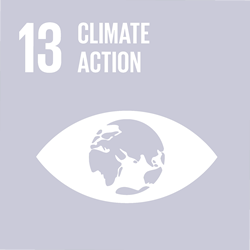




 Please click on the SDG14 colored icon to see to which specific SDG14 targets this initiative is contributing.1. End poverty in all its forms everywhere
Please click on the SDG14 colored icon to see to which specific SDG14 targets this initiative is contributing.1. End poverty in all its forms everywhere
2 End hunger, achieve food security and improved nutrition and promote sustainable agriculture
3 Ensure healthy lives and promote well-being for all at all ages
4 Ensure inclusive and equitable quality education and promote lifelong learning opportunities for all
5 Achieve gender equality and empower all women and girls
6 Ensure availability and sustainable management of water and sanitation for all
7 Ensure access to affordable, reliable, sustainable and modern energy for all
8 Promote sustained, inclusive and sustainable economic growth, full and productive employment and decent work for all
9 Build resilient infrastructure, promote inclusive and sustainable industrialization and foster innovation
10 Reduce inequality within and among countries
11 Make cities and human settlements inclusive, safe, resilient and sustainable
12 Ensure sustainable consumption and production patterns
13 Take urgent action to combat climate change and its impacts
14 Conserve and sustainably use the oceans, seas and marine resources for sustainable development
14.2 By 2020, sustainably manage and protect marine and coastal ecosystems to avoid significant adverse impacts, including by strengthening their resilience, and take action for their restoration in order to achieve healthy and productive oceans14.5 By 2020, conserve at least 10 per cent of coastal and marine areas, consistent with national and international law and based on the best available scientific information14.a Increase scientific knowledge, develop research capacity and transfer marine technology, taking into account the Intergovernmental Oceanographic Commission Criteria and Guidelines on the Transfer of Marine Technology, in order to improve ocean health and to enhance the contribution of marine biodiversity to the development of developing countries, in particular small island developing States and least developed countries15 Protect, restore and promote sustainable use of terrestrial ecosystems, sustainably manage forests, combat desertification, and halt and reverse land degradation and halt biodiversity loss
16 Promote peaceful and inclusive societies for sustainable development, provide access to justice for all and build effective, accountable and inclusive institutions at all levels
Other Regional and Global Commitments
Regional Emerging Issues
CARIB-COAST Caribbean network for the prevention of coastal risks related to climate change
 Red caribeña para la prevención de riesgos costeros relacionados con el cambio climáticoBrief Description:The project focuses on the prevention and crisis management of coastal risks that arise with climate change in the relevant countriesEl proyecto se centra en la prevención y gestión de crisis de los riesgos costeros que surgen con el cambio climático en países relevantes.Lead Organization: Bureau de Recherches Géologiques et Minières (BRGM)Donor: European Union, InterregProject ID:Geographic Scope: Multicountry (regional)Project Status: OngoingLast Update: 05/04/2021
Red caribeña para la prevención de riesgos costeros relacionados con el cambio climáticoBrief Description:The project focuses on the prevention and crisis management of coastal risks that arise with climate change in the relevant countriesEl proyecto se centra en la prevención y gestión de crisis de los riesgos costeros que surgen con el cambio climático en países relevantes.Lead Organization: Bureau de Recherches Géologiques et Minières (BRGM)Donor: European Union, InterregProject ID:Geographic Scope: Multicountry (regional)Project Status: OngoingLast Update: 05/04/2021
Start Date: 2018-11-02
End Date: 2022-12-01Website:https://www.carib-coast.com/en/Project Profile Manager: Yann Balouin
Contact Email: y.balouin@brgm.fr
Contact Phone:Partners: Suez consulting, Institute of Marine Affairs de Trinidad & Tobago, UWI St. Augstine, Mona GIS Institute, Caricoos, AEC ACS, Ifemer, Regional Council of Guadeloupe, Deal Guadeloupe, Water Office of Martinique and GuadeloupeGrant (USD): $3,534,558.00Total co-financing (USD): $2,620,860.00(Co) financing not originating from GEF:Participating Country(s):Jamaica
Guadeloupe
Martinique
Puerto Rico
Trinidad and Tobago
Contributions to the 10-year CLME+ Strategic Action Programme (2015-2025)









 Please click on the colored SAP Strategy icon to obtain more information on the specific SAP Actions this initiative is contributing to1. Enhance the regional governance arrangements for the protection of the marine environment
Please click on the colored SAP Strategy icon to obtain more information on the specific SAP Actions this initiative is contributing to1. Enhance the regional governance arrangements for the protection of the marine environment
1.3. Evaluate expansion and strengthening of the mandate of organizations to effectively address issues relating to habitat degradation and pollution in the marine environment1.5. Establish and/or enhance the capacity of the regional,sub-regional and national governance arrangements for the involvement of civil society in the implementation of the EBM/EAF approach (IGOs,NGOs,CBOs,private sector...)1.6. Enhance the capacity within and among arrangements to undertake and mainstream lessons learned and findings from monitoring,science and research in regional, sub-regional and national decision-making1.7. Establish and/or enhance the capacity within and among arrangements to undertake and mainstream valuation of ecosystem goods and services in regional, sub-regional and national decision-making and policy development1.10. Establish and/or enhance the data and information quality and collection and management capacity of the regional, sub-regional and nationalgovernance arrangements for the protection of the marine environment, including through the establishment of public-private partnerships2. Enhance the regional governance arrangements for sustainable fisheries
3. Establish and operationalise a regional policy coordination mechanismfor ocean governance, with initial focus on shared Living Marine Resources
3.7. Facilitate the preparation of data and information products and the uptake of monitoring and research outputs by (sub)regional and national science-policy interfaces4. Enhance the governance arrangements for ecosystem-based management for reefs and associated ecosystems
4.6. Establish and/or enhance the institutional structure and capacity of (sub-)regional and national arrangements for implementing management and conservation measures for reef ecosystems4A. Enhance the governance arrangementsfor implementing an ecosystem approach for spiny lobster fisheries
4B. Enhance the governance arrangementsfor implementing an ecosystem approach for queen conch fisheries
5. Enhance the governance arrangements for implementing an ecosystem approach for pelagic fisheries
5A. Enhance the governance arrangements for implementing the ecosystem approach for flyingfish fisheries
5B. Enhance the governance arrangementsfor implementing an ecosystem approach for large pelagics fisheries
6. Implement EBM/EAF of the Guianas-Brazil continental shelf with special reference to the shrimp and groundfish fishery
Contributions to the 2030 UN Sustainable Development Agenda (SDG’s)

















 Please click on the SDG14 colored icon to see to which specific SDG14 targets this initiative is contributing.1. End poverty in all its forms everywhere
Please click on the SDG14 colored icon to see to which specific SDG14 targets this initiative is contributing.1. End poverty in all its forms everywhere
2 End hunger, achieve food security and improved nutrition and promote sustainable agriculture
3 Ensure healthy lives and promote well-being for all at all ages
4 Ensure inclusive and equitable quality education and promote lifelong learning opportunities for all
5 Achieve gender equality and empower all women and girls
6 Ensure availability and sustainable management of water and sanitation for all
7 Ensure access to affordable, reliable, sustainable and modern energy for all
8 Promote sustained, inclusive and sustainable economic growth, full and productive employment and decent work for all
9 Build resilient infrastructure, promote inclusive and sustainable industrialization and foster innovation
10 Reduce inequality within and among countries
11 Make cities and human settlements inclusive, safe, resilient and sustainable
12 Ensure sustainable consumption and production patterns
13 Take urgent action to combat climate change and its impacts
13.1 Strengthen resilience and adaptive capacity to climate-related hazards and natural disasters in all countries14 Conserve and sustainably use the oceans, seas and marine resources for sustainable development
14.2 By 2020, sustainably manage and protect marine and coastal ecosystems to avoid significant adverse impacts, including by strengthening their resilience, and take action for their restoration in order to achieve healthy and productive oceans14.5 By 2020, conserve at least 10 per cent of coastal and marine areas, consistent with national and international law and based on the best available scientific information14.a Increase scientific knowledge, develop research capacity and transfer marine technology, taking into account the Intergovernmental Oceanographic Commission Criteria and Guidelines on the Transfer of Marine Technology, in order to improve ocean health and to enhance the contribution of marine biodiversity to the development of developing countries, in particular small island developing States and least developed countries15 Protect, restore and promote sustainable use of terrestrial ecosystems, sustainably manage forests, combat desertification, and halt and reverse land degradation and halt biodiversity loss
16 Promote peaceful and inclusive societies for sustainable development, provide access to justice for all and build effective, accountable and inclusive institutions at all levels
Other Regional and Global Commitments
Regional Emerging Issues
Protecting coastal zones in Colombia
Protegiendo zonas costeras en ColombiaBrief Description:The project helps environmental institutions to identify, prioritise and designate marine and coastal zones as protected areas. To this end, it analyses the impacts of climate change scenarios on various marine and coastal areas in the Caribbean Sea and supports the country in the designation of new protected areas. The project also develops and implements a sustainable management strategy for these areas in cooperation with local communities and institutions. In this way, it helps to conserve biodiversity, to mitigate the consequences of climate change and to safeguard the traditional livelihoods of local communities. The capacities of state and civil society stakeholders are also strengthened, enabling them to better adapt to climate change and to preserve biodiversity and ecosystem servicesEl proyecto ayuda a las instituciones ambientales a identificar, priorizar y designar zonas marinas y costeras como áreas protegidas. Para ello, analiza los impactos de los escenarios de cambio climático en diversas áreas marinas y costeras del Mar Caribe y apoya al país en la designación de nuevas áreas protegidas. El proyecto también desarrolla e implementa una estrategia de gestión sostenible para estas áreas en cooperación con las comunidades e instituciones locales. De esta manera, ayuda a conservar la biodiversidad, a mitigar las consecuencias del cambio climático y a salvaguardar los medios de vida tradicionales de las comunidades locales. También se fortalecen las capacidades de las partes interesadas del Estado y de la sociedad civil, lo que les permite adaptarse mejor al cambio climático y preservar la diversidad biológica y los servicios de los ecosistemas.Lead Organization: Min-Ambiente, Parques NacionalesDonor: GIZ-IKIProject ID: 18_IV_044-3051Geographic Scope: NationalProject Status: OngoingLast Update: 29/03/2021
Start Date: 2019-01-01
End Date: 2023-06-01Project Profile Manager: Pedro Orlando Molano
Contact Email: direccion.general@parquesnacionales.gov.co
Contact Phone:Partners: Corpo-Guajira, Departamento GuajiraGrant (USD): $5,900,000.00Total co-financing (USD): $0.00(Co) financing not originating from GEF:Participating Country(s):Colombia
Contributions to the 10-year CLME+ Strategic Action Programme (2015-2025)









 Please click on the colored SAP Strategy icon to obtain more information on the specific SAP Actions this initiative is contributing to1. Enhance the regional governance arrangements for the protection of the marine environment
Please click on the colored SAP Strategy icon to obtain more information on the specific SAP Actions this initiative is contributing to1. Enhance the regional governance arrangements for the protection of the marine environment
1.4. Enhance the compliance and enforcement capacity of the regional, sub-regional and national governance arrangements1.9. Strengthen the capacity of the regional and sub-regional arrangements to support countries in becoming parties to relevant international and regional agreements and complying with their global and regional commitments towards the conservation of the marine environment (including the support to update and harmonize national legislation and regulations)2. Enhance the regional governance arrangements for sustainable fisheries
3. Establish and operationalise a regional policy coordination mechanismfor ocean governance, with initial focus on shared Living Marine Resources
4. Enhance the governance arrangements for ecosystem-based management for reefs and associated ecosystems
4.6. Establish and/or enhance the institutional structure and capacity of (sub-)regional and national arrangements for implementing management and conservation measures for reef ecosystems4.7. Strengthen the capacity of Regional Fisheries Bodies to engage and build capacity among member States to implement the EBM/EAF approach, through National Action Plans (NAPs), data/information management and analysis, and operationalisation of national intersectoral coordination and consultation mechanisms that include science-policy interfaces4A. Enhance the governance arrangementsfor implementing an ecosystem approach for spiny lobster fisheries
4B. Enhance the governance arrangementsfor implementing an ecosystem approach for queen conch fisheries
5. Enhance the governance arrangements for implementing an ecosystem approach for pelagic fisheries
5A. Enhance the governance arrangements for implementing the ecosystem approach for flyingfish fisheries
5B. Enhance the governance arrangementsfor implementing an ecosystem approach for large pelagics fisheries
6. Implement EBM/EAF of the Guianas-Brazil continental shelf with special reference to the shrimp and groundfish fishery
Contributions to the 2030 UN Sustainable Development Agenda (SDG’s)

















 Please click on the SDG14 colored icon to see to which specific SDG14 targets this initiative is contributing.1. End poverty in all its forms everywhere
Please click on the SDG14 colored icon to see to which specific SDG14 targets this initiative is contributing.1. End poverty in all its forms everywhere
2 End hunger, achieve food security and improved nutrition and promote sustainable agriculture
3 Ensure healthy lives and promote well-being for all at all ages
4 Ensure inclusive and equitable quality education and promote lifelong learning opportunities for all
5 Achieve gender equality and empower all women and girls
6 Ensure availability and sustainable management of water and sanitation for all
7 Ensure access to affordable, reliable, sustainable and modern energy for all
8 Promote sustained, inclusive and sustainable economic growth, full and productive employment and decent work for all
9 Build resilient infrastructure, promote inclusive and sustainable industrialization and foster innovation
10 Reduce inequality within and among countries
11 Make cities and human settlements inclusive, safe, resilient and sustainable
12 Ensure sustainable consumption and production patterns
13 Take urgent action to combat climate change and its impacts
13.1 Strengthen resilience and adaptive capacity to climate-related hazards and natural disasters in all countries14 Conserve and sustainably use the oceans, seas and marine resources for sustainable development
14.2 By 2020, sustainably manage and protect marine and coastal ecosystems to avoid significant adverse impacts, including by strengthening their resilience, and take action for their restoration in order to achieve healthy and productive oceans14.5 By 2020, conserve at least 10 per cent of coastal and marine areas, consistent with national and international law and based on the best available scientific information15 Protect, restore and promote sustainable use of terrestrial ecosystems, sustainably manage forests, combat desertification, and halt and reverse land degradation and halt biodiversity loss
16 Promote peaceful and inclusive societies for sustainable development, provide access to justice for all and build effective, accountable and inclusive institutions at all levels
Other Regional and Global Commitments
Regional Emerging Issues
Co-creating sustainable and inclusive solutions for social adaptation to climate challenges in the (Dutch) Caribbean
Co-creando soluciones sostenibles e inclusivas para la adaptación social a los desafíos climáticos en el Caribe (holandés)Brief Description:This project is aimed to combine technical, traditional, and contemporary knowledge practices to co-create sustainable and inclusive strategies for social adaptation to these climatic challenges. A trans-Atlantic academic platform will be developed fostering research-based education on climate challenges for the six islands. Moreover, a regional expertise center on climate challenges, where the Dutch Caribbean researchers can find employ. It is also looking for strengthening of the knowledge system and the embedding of scientific research in the Caribbean part of the Kingdom of the Netherlands.Este proyecto tiene como objetivo combinar prácticas de conocimiento técnico, tradicional y contemporáneo para co-crear estrategias sostenibles e inclusivas para la adaptación social a estos desafíos climáticos. Se desarrollará una plataforma académica transatlántica que fomente la educación basada en la investigación sobre los desafíos climáticos para las seis islas. Además, un centro regional de experiencia en desafíos climáticos, donde los investigadores del Caribe holandés pueden encontrar empleo. También busca fortalecer el sistema de conocimientos y la integración de la investigación científica en la parte caribeña del Reino de los Países Bajos.Lead Organization: University of AmsterdamDonor: Dutch Minister of Education, Culture and ScienceProject ID:Geographic Scope: Multicountry (regional)Project Status: OngoingLast Update: 29/03/2021
Start Date: 2021-02-01
End Date: 2025-02-01Website:Project Profile Manager: Francio Guadeloupe
Contact Email: secretariat@caribbeanstudiesassociation.org
Contact Phone:Partners: Island(er)s at the Helm, Leiden University, University of St. Martin, University of Curaçao, University of Aruba, Caribbean Netherlands Science InstituteGrant (USD): $3,730,300.00Total co-financing (USD): $0.00(Co) financing not originating from GEF:Participating Country(s):Aruba
Bonaire
Curaçao
Sint Eustatius
Saba
Saint Maarten
Contributions to the 10-year CLME+ Strategic Action Programme (2015-2025)









 Please click on the colored SAP Strategy icon to obtain more information on the specific SAP Actions this initiative is contributing to1. Enhance the regional governance arrangements for the protection of the marine environment
Please click on the colored SAP Strategy icon to obtain more information on the specific SAP Actions this initiative is contributing to1. Enhance the regional governance arrangements for the protection of the marine environment
1.6. Enhance the capacity within and among arrangements to undertake and mainstream lessons learned and findings from monitoring,science and research in regional, sub-regional and national decision-making2. Enhance the regional governance arrangements for sustainable fisheries
3. Establish and operationalise a regional policy coordination mechanismfor ocean governance, with initial focus on shared Living Marine Resources
4. Enhance the governance arrangements for ecosystem-based management for reefs and associated ecosystems
4.4. Coordinate and enhance (sub-)regional and national efforts for the conservation of the biodiversity of reef and associated habitats, including through the strengthening of networks of marine protected areas (MPAs), and initiatives for sustainable reef fisheries* such as programmes dealing with alien invasive species4A. Enhance the governance arrangementsfor implementing an ecosystem approach for spiny lobster fisheries
4B. Enhance the governance arrangementsfor implementing an ecosystem approach for queen conch fisheries
5. Enhance the governance arrangements for implementing an ecosystem approach for pelagic fisheries
5A. Enhance the governance arrangements for implementing the ecosystem approach for flyingfish fisheries
5B. Enhance the governance arrangementsfor implementing an ecosystem approach for large pelagics fisheries
6. Implement EBM/EAF of the Guianas-Brazil continental shelf with special reference to the shrimp and groundfish fishery
Contributions to the 2030 UN Sustainable Development Agenda (SDG’s)

















 Please click on the SDG14 colored icon to see to which specific SDG14 targets this initiative is contributing.1. End poverty in all its forms everywhere
Please click on the SDG14 colored icon to see to which specific SDG14 targets this initiative is contributing.1. End poverty in all its forms everywhere
2 End hunger, achieve food security and improved nutrition and promote sustainable agriculture
3 Ensure healthy lives and promote well-being for all at all ages
4 Ensure inclusive and equitable quality education and promote lifelong learning opportunities for all
5 Achieve gender equality and empower all women and girls
6 Ensure availability and sustainable management of water and sanitation for all
7 Ensure access to affordable, reliable, sustainable and modern energy for all
8 Promote sustained, inclusive and sustainable economic growth, full and productive employment and decent work for all
9 Build resilient infrastructure, promote inclusive and sustainable industrialization and foster innovation
10 Reduce inequality within and among countries
11 Make cities and human settlements inclusive, safe, resilient and sustainable
12 Ensure sustainable consumption and production patterns
13 Take urgent action to combat climate change and its impacts
13.1 Strengthen resilience and adaptive capacity to climate-related hazards and natural disasters in all countries14 Conserve and sustainably use the oceans, seas and marine resources for sustainable development
14.a Increase scientific knowledge, develop research capacity and transfer marine technology, taking into account the Intergovernmental Oceanographic Commission Criteria and Guidelines on the Transfer of Marine Technology, in order to improve ocean health and to enhance the contribution of marine biodiversity to the development of developing countries, in particular small island developing States and least developed countries15 Protect, restore and promote sustainable use of terrestrial ecosystems, sustainably manage forests, combat desertification, and halt and reverse land degradation and halt biodiversity loss
16 Promote peaceful and inclusive societies for sustainable development, provide access to justice for all and build effective, accountable and inclusive institutions at all levels
Other Regional and Global Commitments
Regional Emerging Issues
SEALINK Land, sea, and society: a multidisciplinary approach
Tierra, mar y sociedadBrief Description:The SEALINK Program will create the first comprehensive understanding of ocean pollution and coral reef health in the Dutch Caribbean. We will follow water and pollutants (including sewage, fertilizer, and human pathogens) from land to sea, and track how water motion and marine organisms move and change these substances. It will also measure coral reef growth in 3D. This information will be used in computer simulations to create new conservation scenarios with community input. The project will also study how community members use scientific information, which will help improve coral reef education and conservation globallyEl programa SEALINK creará una comprensión integral de la contaminación del océano y la salud de los arrecifes de coral en el Caribe holandés. Se monitoreara el agua y los contaminantes (incluyendo aguas residuales, fertilizantes y patógenos humanos) de la tierra al mar, y y se rastreará cómo el movimiento del agua y los organismos marinos se mueven y estas sustancias cambian. También medirá el crecimiento de los arrecifes de coral en 3D. Esta información se utilizará en simulaciones por computadora para crear nuevos escenarios de conservación con aportes de la comunidad. El proyecto también estudiará cómo los miembros de la comunidad utilizan la información científica, lo que ayudará a mejorar la educación y conservación de los arrecifes de coral a nivel mundial.Lead Organization: Royal Netherlands Institute of Southeast Asian and Caribbean StudiesDonor: Dutch Minister of Education, Culture and ScienceProject ID:Geographic Scope: Multicountry (regional)Project Status: OngoingLast Update: 29/03/2021
Start Date: 2021-02-01
End Date: 2026-02-01Project Profile Manager: Mark Vermeij
Contact Email: m.j.a.vermeij@uva.nl
Contact Phone:Partners: University of Amsterdam, CARMABI Curaçao, Caribean Netherlands Science Institute, Nethelands Institute for Sea Researc, Technical University Delft, Wageningen University, Utrech University, Free University of Amsterdam, Netherlands Insitute for Sea ResearchGrant (USD): $3,730,300.00Total co-financing (USD): $0.00(Co) financing not originating from GEF:Participating Country(s):Aruba
Curaçao
Saint Maarten
Contributions to the 10-year CLME+ Strategic Action Programme (2015-2025)









 Please click on the colored SAP Strategy icon to obtain more information on the specific SAP Actions this initiative is contributing to1. Enhance the regional governance arrangements for the protection of the marine environment
Please click on the colored SAP Strategy icon to obtain more information on the specific SAP Actions this initiative is contributing to1. Enhance the regional governance arrangements for the protection of the marine environment
1.6. Enhance the capacity within and among arrangements to undertake and mainstream lessons learned and findings from monitoring,science and research in regional, sub-regional and national decision-making2. Enhance the regional governance arrangements for sustainable fisheries
3. Establish and operationalise a regional policy coordination mechanismfor ocean governance, with initial focus on shared Living Marine Resources
4. Enhance the governance arrangements for ecosystem-based management for reefs and associated ecosystems
4.4. Coordinate and enhance (sub-)regional and national efforts for the conservation of the biodiversity of reef and associated habitats, including through the strengthening of networks of marine protected areas (MPAs), and initiatives for sustainable reef fisheries* such as programmes dealing with alien invasive species4A. Enhance the governance arrangementsfor implementing an ecosystem approach for spiny lobster fisheries
4B. Enhance the governance arrangementsfor implementing an ecosystem approach for queen conch fisheries
5. Enhance the governance arrangements for implementing an ecosystem approach for pelagic fisheries
5A. Enhance the governance arrangements for implementing the ecosystem approach for flyingfish fisheries
5B. Enhance the governance arrangementsfor implementing an ecosystem approach for large pelagics fisheries
6. Implement EBM/EAF of the Guianas-Brazil continental shelf with special reference to the shrimp and groundfish fishery
Contributions to the 2030 UN Sustainable Development Agenda (SDG’s)

















 Please click on the SDG14 colored icon to see to which specific SDG14 targets this initiative is contributing.1. End poverty in all its forms everywhere
Please click on the SDG14 colored icon to see to which specific SDG14 targets this initiative is contributing.1. End poverty in all its forms everywhere
2 End hunger, achieve food security and improved nutrition and promote sustainable agriculture
3 Ensure healthy lives and promote well-being for all at all ages
4 Ensure inclusive and equitable quality education and promote lifelong learning opportunities for all
5 Achieve gender equality and empower all women and girls
6 Ensure availability and sustainable management of water and sanitation for all
7 Ensure access to affordable, reliable, sustainable and modern energy for all
8 Promote sustained, inclusive and sustainable economic growth, full and productive employment and decent work for all
9 Build resilient infrastructure, promote inclusive and sustainable industrialization and foster innovation
10 Reduce inequality within and among countries
11 Make cities and human settlements inclusive, safe, resilient and sustainable
12 Ensure sustainable consumption and production patterns
13 Take urgent action to combat climate change and its impacts
14 Conserve and sustainably use the oceans, seas and marine resources for sustainable development
14.a Increase scientific knowledge, develop research capacity and transfer marine technology, taking into account the Intergovernmental Oceanographic Commission Criteria and Guidelines on the Transfer of Marine Technology, in order to improve ocean health and to enhance the contribution of marine biodiversity to the development of developing countries, in particular small island developing States and least developed countries15 Protect, restore and promote sustainable use of terrestrial ecosystems, sustainably manage forests, combat desertification, and halt and reverse land degradation and halt biodiversity loss
16 Promote peaceful and inclusive societies for sustainable development, provide access to justice for all and build effective, accountable and inclusive institutions at all levels
Other Regional and Global Commitments
Regional Emerging Issues
Enhancing Caribbean Civil Society’s Access and Readiness for Climate Finance
Mejorando el acceso y la preparación de la sociedad civil del Caribe para el financiamiento climáticoBrief Description:This project will actively involve the main national and regional CSOs of the Caribbean Community and regional accredited Entities to develop their capacities to access climate finance and carry out climate actions, improve mechanisms for multi-stakeholder decision-making and participation at the national and regional level in the definition of investment and prioritization of climate projects. Alliances with the public and private sectors will be strengthened, including MEMEs, key to mobilize actions and channel funds at the local level. Among other products, the project is expected to develop tools to promote and strengthen national coordination mechanisms, including the monitoring and implementation of National Adaptation Plans. It will also map community-based and ecosystem-based approaches, to identify best practices, innovations, and potential for scalability. Selected leading national CSOs and CSOs will increase their capacities to implement climate change projects / programs, and work will be done to develop a Civil Society Climate Change Agenda and Action Plan for 2020-2030.Este proyecto involucrará activamente a las principales OSC nacionales y regionales de la Comunidad del Caribe y a las Entidades acreditadas regionales para desarrollar sus capacidades para acceder al financiamiento climático y realizar acciones climáticas, mejorar los mecanismos para la toma de decisiones de múltiples partes interesadas y la participación de las OSC a nivel nacional y regional en la definición de la inversión y prioritizacion de proyectos climáticos. Se fortalecerán las alianzas con el sector público y privado, incluidas las MIPYMES, también es clave para movilizar acciones y canalizar fondos a nivel local. Entre otros productos, se espera que el proyecto desarrolle herramientas para promover y fortalecer los mecanismos de coordinación nacional, incluyendo el monitoreo y la implementación de los Planes Nacionales de Adaptación. También mapeará enfoques basados en la comunidad y en los ecosistemas, para identificar las mejores prácticas, innovaciones y el potencial de ampliación. Las OSC nacionales líderes seleccionadas y las OSC aumentarán sus capacidades para ejecutar proyectos / programas de cambio climático, y se trabajará en desarrollar una Agenda y un Plan de Acción sobre el Cambio Climático de la Sociedad Civil para 2020-2030.Lead Organization: Climate Change Division, Ministry of Housing, Urban Renewal, Environment and Climate Change, JamaicaDonor: Green Climate FundProject ID:Geographic Scope: Multicountry (regional)Project Status: OngoingLast Update: 29/03/2021
Start Date: 2020-02-01
End Date: 2022-08-01Project Profile Manager: UnaMay Gordon / Ainka Granderson
Contact Email: unamay.gordon@megjc.gov.jm
Contact Phone:Partners: CANARI, CARICOM, Caribbean NDAsGrant (USD): $1,296,958.00Total co-financing (USD): $0.00(Co) financing not originating from GEF:Participating Country(s):Belize
Suriname
Grenada
Jamaica
Saint Lucia
Antigua and Barbuda
Saint Kitts and Nevis
Contributions to the 10-year CLME+ Strategic Action Programme (2015-2025)









 Please click on the colored SAP Strategy icon to obtain more information on the specific SAP Actions this initiative is contributing to1. Enhance the regional governance arrangements for the protection of the marine environment
Please click on the colored SAP Strategy icon to obtain more information on the specific SAP Actions this initiative is contributing to1. Enhance the regional governance arrangements for the protection of the marine environment
1.4. Enhance the compliance and enforcement capacity of the regional, sub-regional and national governance arrangements1.5. Establish and/or enhance the capacity of the regional,sub-regional and national governance arrangements for the involvement of civil society in the implementation of the EBM/EAF approach (IGOs,NGOs,CBOs,private sector...)1.6. Enhance the capacity within and among arrangements to undertake and mainstream lessons learned and findings from monitoring,science and research in regional, sub-regional and national decision-making1.9. Strengthen the capacity of the regional and sub-regional arrangements to support countries in becoming parties to relevant international and regional agreements and complying with their global and regional commitments towards the conservation of the marine environment (including the support to update and harmonize national legislation and regulations)2. Enhance the regional governance arrangements for sustainable fisheries
3. Establish and operationalise a regional policy coordination mechanismfor ocean governance, with initial focus on shared Living Marine Resources
4. Enhance the governance arrangements for ecosystem-based management for reefs and associated ecosystems
4.2. Establish and/or enhance the cooperation between environmental, fisheries and other relevant agencies within CARICOM for implementing the EBM/EAF approach4A. Enhance the governance arrangementsfor implementing an ecosystem approach for spiny lobster fisheries
4B. Enhance the governance arrangementsfor implementing an ecosystem approach for queen conch fisheries
5. Enhance the governance arrangements for implementing an ecosystem approach for pelagic fisheries
5A. Enhance the governance arrangements for implementing the ecosystem approach for flyingfish fisheries
5B. Enhance the governance arrangementsfor implementing an ecosystem approach for large pelagics fisheries
6. Implement EBM/EAF of the Guianas-Brazil continental shelf with special reference to the shrimp and groundfish fishery
Contributions to the 2030 UN Sustainable Development Agenda (SDG’s)

















 Please click on the SDG14 colored icon to see to which specific SDG14 targets this initiative is contributing.1. End poverty in all its forms everywhere
Please click on the SDG14 colored icon to see to which specific SDG14 targets this initiative is contributing.1. End poverty in all its forms everywhere
2 End hunger, achieve food security and improved nutrition and promote sustainable agriculture
3 Ensure healthy lives and promote well-being for all at all ages
4 Ensure inclusive and equitable quality education and promote lifelong learning opportunities for all
5 Achieve gender equality and empower all women and girls
6 Ensure availability and sustainable management of water and sanitation for all
7 Ensure access to affordable, reliable, sustainable and modern energy for all
8 Promote sustained, inclusive and sustainable economic growth, full and productive employment and decent work for all
9 Build resilient infrastructure, promote inclusive and sustainable industrialization and foster innovation
10 Reduce inequality within and among countries
11 Make cities and human settlements inclusive, safe, resilient and sustainable
12 Ensure sustainable consumption and production patterns
13 Take urgent action to combat climate change and its impacts
13.1 Strengthen resilience and adaptive capacity to climate-related hazards and natural disasters in all countries14 Conserve and sustainably use the oceans, seas and marine resources for sustainable development
14.3 Minimize and address the impacts of ocean acidification, including through enhanced scientific cooperation at all levels14.a Increase scientific knowledge, develop research capacity and transfer marine technology, taking into account the Intergovernmental Oceanographic Commission Criteria and Guidelines on the Transfer of Marine Technology, in order to improve ocean health and to enhance the contribution of marine biodiversity to the development of developing countries, in particular small island developing States and least developed countries15 Protect, restore and promote sustainable use of terrestrial ecosystems, sustainably manage forests, combat desertification, and halt and reverse land degradation and halt biodiversity loss
16 Promote peaceful and inclusive societies for sustainable development, provide access to justice for all and build effective, accountable and inclusive institutions at all levels
Other Regional and Global Commitments
Regional Emerging Issues
Increasing the climate change resilience and public awareness of the Pointe Sable Environmental Protection Area and Pigeon Island National Landmark ecosystems
Aumentar la resiliencia al cambio climático y la conciencia pública de los ecosistemas del Área de Protección Ambiental de Pointe Sable y el Monumento Nacional de Pigeon IslandBrief Description:The project is aimed to enhance the climate resilience of targeted ecosystems within the Pointe Sable Environmental Protection Area (PSEPA) and Pigeon Island National Landmark by strengthening the coastlines and improving the management and health of coastal ecosystems. Through this project it is expected to conduct several activities including: a) mangrove and coral reef assessments and rehabilitation plan, ecosystem valuation and rehabilitation works; b) conduct a coastal stabilisation study and recommendations for the PSEPA, along with building grey Infrastructure to reduce negative impacts on coastal resources and reduce soil erosion and sedimentation run-off; and d) increase public awareness and outreach for civil society on the importance of ecosystems in promoting climate resilience including the education of resource users to pursue alternative livelihoods, among other topics.El proyecto tiene como objetivo mejorar la resiliencia climática de los ecosistemas en el Área de Protección Ambiental de Pointe Sable (PSEPA) y el Monumento Nacional de Pigeon Island mediante el fortalecimiento de las costas y el mejoramiento de la gestión y la salud de los ecosistemas costeros. A través de este proyecto se espera realizar varias actividades que incluyen: a) evaluaciones y plan de rehabilitación de manglares y arrecifes de coral, trabajos de valoración y rehabilitación de ecosistemas; b) un estudio de estabilización costera y recomendaciones para el PSEPA, junto con la construcción de infraestructura gris para reducir los impactos negativos sobre los recursos costeros y reducir la erosión del suelo y la escorrentía de sedimentación; y c) aumentar la conciencia pública y el alcance de la sociedad civil sobre la importancia de los ecosistemas en la promoción de la resiliencia climática, incluida la educación de los usuarios de los recursos para buscar medios de vida alternativos, entre otros temas.Lead Organization: Saint Lucia National TrustDonor: CBF/KfW eba 1 76Project ID: EbA1 76Geographic Scope: NationalProject Status: OngoingLast Update: 29/03/2021
Start Date: 2020
End Date: 2023Website:Project Profile Manager: Bishnu Tulsie
Contact Email: director@slunatrust.org
Contact Phone:Partners:Grant (USD): $893,055.00Total co-financing (USD): $186,290.00(Co) financing not originating from GEF:Participating Country(s):Saint Lucia
Contributions to the 10-year CLME+ Strategic Action Programme (2015-2025)









 Please click on the colored SAP Strategy icon to obtain more information on the specific SAP Actions this initiative is contributing to1. Enhance the regional governance arrangements for the protection of the marine environment
Please click on the colored SAP Strategy icon to obtain more information on the specific SAP Actions this initiative is contributing to1. Enhance the regional governance arrangements for the protection of the marine environment
1.7. Establish and/or enhance the capacity within and among arrangements to undertake and mainstream valuation of ecosystem goods and services in regional, sub-regional and national decision-making and policy development2. Enhance the regional governance arrangements for sustainable fisheries
3. Establish and operationalise a regional policy coordination mechanismfor ocean governance, with initial focus on shared Living Marine Resources
4. Enhance the governance arrangements for ecosystem-based management for reefs and associated ecosystems
4.4. Coordinate and enhance (sub-)regional and national efforts for the conservation of the biodiversity of reef and associated habitats, including through the strengthening of networks of marine protected areas (MPAs), and initiatives for sustainable reef fisheries* such as programmes dealing with alien invasive species4.6. Establish and/or enhance the institutional structure and capacity of (sub-)regional and national arrangements for implementing management and conservation measures for reef ecosystems4.7. Strengthen the capacity of Regional Fisheries Bodies to engage and build capacity among member States to implement the EBM/EAF approach, through National Action Plans (NAPs), data/information management and analysis, and operationalisation of national intersectoral coordination and consultation mechanisms that include science-policy interfaces4A. Enhance the governance arrangementsfor implementing an ecosystem approach for spiny lobster fisheries
4B. Enhance the governance arrangementsfor implementing an ecosystem approach for queen conch fisheries
5. Enhance the governance arrangements for implementing an ecosystem approach for pelagic fisheries
5A. Enhance the governance arrangements for implementing the ecosystem approach for flyingfish fisheries
5B. Enhance the governance arrangementsfor implementing an ecosystem approach for large pelagics fisheries
6. Implement EBM/EAF of the Guianas-Brazil continental shelf with special reference to the shrimp and groundfish fishery
Contributions to the 2030 UN Sustainable Development Agenda (SDG’s)

















 Please click on the SDG14 colored icon to see to which specific SDG14 targets this initiative is contributing.1. End poverty in all its forms everywhere
Please click on the SDG14 colored icon to see to which specific SDG14 targets this initiative is contributing.1. End poverty in all its forms everywhere
2 End hunger, achieve food security and improved nutrition and promote sustainable agriculture
3 Ensure healthy lives and promote well-being for all at all ages
4 Ensure inclusive and equitable quality education and promote lifelong learning opportunities for all
5 Achieve gender equality and empower all women and girls
6 Ensure availability and sustainable management of water and sanitation for all
7 Ensure access to affordable, reliable, sustainable and modern energy for all
8 Promote sustained, inclusive and sustainable economic growth, full and productive employment and decent work for all
9 Build resilient infrastructure, promote inclusive and sustainable industrialization and foster innovation
10 Reduce inequality within and among countries
11 Make cities and human settlements inclusive, safe, resilient and sustainable
12 Ensure sustainable consumption and production patterns
13 Take urgent action to combat climate change and its impacts
13.1 Strengthen resilience and adaptive capacity to climate-related hazards and natural disasters in all countries14 Conserve and sustainably use the oceans, seas and marine resources for sustainable development
14.2 By 2020, sustainably manage and protect marine and coastal ecosystems to avoid significant adverse impacts, including by strengthening their resilience, and take action for their restoration in order to achieve healthy and productive oceans14.5 By 2020, conserve at least 10 per cent of coastal and marine areas, consistent with national and international law and based on the best available scientific information15 Protect, restore and promote sustainable use of terrestrial ecosystems, sustainably manage forests, combat desertification, and halt and reverse land degradation and halt biodiversity loss
16 Promote peaceful and inclusive societies for sustainable development, provide access to justice for all and build effective, accountable and inclusive institutions at all levels
Other Regional and Global Commitments
Regional Emerging Issues
Climate Smarting Marine Protected Areas and Coastal Management in the Mesoamerican Reef Region
Áreas protegidas marinas climáticamente inteligentes y gestión costera en la región del arrecife mesoamericanoBrief Description:The project aims to mainstream climate-smart principles into Marine Protected Area management and coastal development policies in countries bordering the Mesoamerican Reef with a view to improve the adaptive capacities of coastal communities in the region. Specific, e.g. ecosystem-based, adaptation options will be determined in a cross-sector and stakeholder-driven decision-making process applying science-based tools including ecological risk assessments and cost-benefit analyses that integrate climate change and social development scenarios, ecosystem services modelling and green vs. grey infrastructure. While informing relevant policy and management frameworks, adaptation measures will be implemented in selected coastal areas in Mexico, Belize, Guatemala and Honduras. The project will enhance knowledge and capacities at local and national levels, contribute to national adaptation policies and action plans and make best practices available at relevant national and international fora.El proyecto tiene como objetivo incorporar principios climáticamente inteligentes en la gestión de áreas marinas protegidas y en las políticas de desarrollo costero en los países ribereños del Arrecife Mesoamericano con miras a mejorar las capacidades de adaptación de las comunidades costeras de la región. Específico, p. Ej. Las opciones de adaptación basadas en los ecosistemas se determinarán en un proceso de toma de decisiones intersectorial e impulsado por las partes interesadas aplicando herramientas científicas que incluyen evaluaciones de riesgo ecológico y análisis de costo-beneficio que integran escenarios de cambio climático y desarrollo social, modelado de servicios ecosistémicos y ecología. vs infraestructura gris. Al mismo tiempo que se informan los marcos de gestión y políticas pertinentes, se implementarán medidas de adaptación en áreas costeras seleccionadas en México, Belice, Guatemala y Honduras. El proyecto mejorará los conocimientos y las capacidades a nivel local y nacional, contribuirá a las políticas y planes de acción nacionales de adaptación y hará que las mejores prácticas estén disponibles en los foros nacionales e internacionales pertinentes.Lead Organization: WWF-GermanyDonor: BMUProject ID: 152-3009Geographic Scope: Multicountry (regional)Project Status: OngoingLast Update: 25/03/2021
Start Date: 2018-06-01
End Date: 2022-11-01Project Profile Manager: Andreas Lehnhoff
Contact Email: info@wwf.de
Contact Phone:Partners: Belize Fisheries Department, Belize Coastal Zone Management Authority,Belize National Protected Areas Secretariat, Honduras National Institute of Forest Conservation and Development, Honduras Protected Areas and Wildlife, Ministry of Energy, Natural Resources, Environment and Mines, Guatemala Ministry of Environment and Natural Resources, Mexico National Commission of Protected Areas, US Leland Stanford Jr. UniversityGrant (USD): $5,245,829.00Total co-financing (USD): $0.00(Co) financing not originating from GEF:Participating Country(s):Belize
Guatemala
Honduras
Mexico
Contributions to the 10-year CLME+ Strategic Action Programme (2015-2025)









 Please click on the colored SAP Strategy icon to obtain more information on the specific SAP Actions this initiative is contributing to1. Enhance the regional governance arrangements for the protection of the marine environment
Please click on the colored SAP Strategy icon to obtain more information on the specific SAP Actions this initiative is contributing to1. Enhance the regional governance arrangements for the protection of the marine environment
1.6. Enhance the capacity within and among arrangements to undertake and mainstream lessons learned and findings from monitoring,science and research in regional, sub-regional and national decision-making2. Enhance the regional governance arrangements for sustainable fisheries
3. Establish and operationalise a regional policy coordination mechanismfor ocean governance, with initial focus on shared Living Marine Resources
4. Enhance the governance arrangements for ecosystem-based management for reefs and associated ecosystems
4A. Enhance the governance arrangementsfor implementing an ecosystem approach for spiny lobster fisheries
4B. Enhance the governance arrangementsfor implementing an ecosystem approach for queen conch fisheries
5. Enhance the governance arrangements for implementing an ecosystem approach for pelagic fisheries
5A. Enhance the governance arrangements for implementing the ecosystem approach for flyingfish fisheries
5B. Enhance the governance arrangementsfor implementing an ecosystem approach for large pelagics fisheries
6. Implement EBM/EAF of the Guianas-Brazil continental shelf with special reference to the shrimp and groundfish fishery
Contributions to the 2030 UN Sustainable Development Agenda (SDG’s)

















 Please click on the SDG14 colored icon to see to which specific SDG14 targets this initiative is contributing.1. End poverty in all its forms everywhere
Please click on the SDG14 colored icon to see to which specific SDG14 targets this initiative is contributing.1. End poverty in all its forms everywhere
2 End hunger, achieve food security and improved nutrition and promote sustainable agriculture
3 Ensure healthy lives and promote well-being for all at all ages
4 Ensure inclusive and equitable quality education and promote lifelong learning opportunities for all
5 Achieve gender equality and empower all women and girls
6 Ensure availability and sustainable management of water and sanitation for all
7 Ensure access to affordable, reliable, sustainable and modern energy for all
8 Promote sustained, inclusive and sustainable economic growth, full and productive employment and decent work for all
9 Build resilient infrastructure, promote inclusive and sustainable industrialization and foster innovation
10 Reduce inequality within and among countries
11 Make cities and human settlements inclusive, safe, resilient and sustainable
12 Ensure sustainable consumption and production patterns
13 Take urgent action to combat climate change and its impacts
13.1 Strengthen resilience and adaptive capacity to climate-related hazards and natural disasters in all countries14 Conserve and sustainably use the oceans, seas and marine resources for sustainable development
14.3 Minimize and address the impacts of ocean acidification, including through enhanced scientific cooperation at all levels14.5 By 2020, conserve at least 10 per cent of coastal and marine areas, consistent with national and international law and based on the best available scientific information15 Protect, restore and promote sustainable use of terrestrial ecosystems, sustainably manage forests, combat desertification, and halt and reverse land degradation and halt biodiversity loss
16 Promote peaceful and inclusive societies for sustainable development, provide access to justice for all and build effective, accountable and inclusive institutions at all levels
Other Regional and Global Commitments
Regional Emerging Issues
ABOUT
FROM VISION TO STRATEGIC ACTION
WORKING TOGETHER
PROJECTS AND INITIATIVES
ABOUT
MenuFROM VISION TO STRATEGIC ACTION
MenuWORKING TOGETHER
MenuPROJECTS AND INITIATIVES
MenuTOOLS
The CLME+ Hub is an initiative of the Secretariat of the CLME+ Interim Coordination Mechanism (ICM), in collaboration with the members of the CLME+ ICM and CLME+ Project Executive Group (PEG) and (prospective) Partner Organizations. Development of the Hub has benefited from the financial support of the UNDP/GEF Project: “Catalysing Implementation of the Strategic Action Programme (SAP) for the Sustainable Management of shared Living Marine Resources in the Caribbean and North Brazil Shelf Large Marine Ecosystems” (CLME+ Project, 2015-2020). The CLME+ Project is executed by the United Nations Office for Project Services (UNOPS) in close collaboration with a large number of global, regional and national-level partners. For more information on the CLME+ Project click here
Copyright © 2021 CLME + HUB
Menu

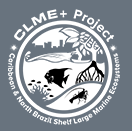

Cookies policy
We use cookies to enhance your site experience, to provide you with extra functionalities and for analytical purposes. You can consent to the use of such technology by accepting and closing this notice. If you want to find out more, please read our cookies policy here.
Welcome to SOMEE
MenuSOMEE content is still under development and is therefore not yet available online. However, you can already check for sample text and materials under the sections in blue text










